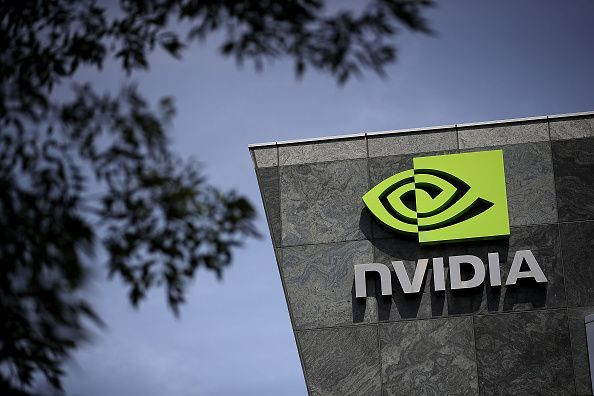NVIDIA Is The Latest Company To Plummet On Slowing Growth In China

Expectations were high going into NVIDIA's (NASDAQ:NVDA) fiscal 2019 third-quarter financial report in mid-November, but a slowing cryptocurrency market hit the company's results harder than many anticipated. As a result, NVIDIA management had issued somewhat conservative guidance for its upcoming fourth quarter, forecasting revenue of $2.7 billion and earnings per share of about $1.53, that was far below analyst expectations.
NVIDIA shocked investors this week when it revised its financial guidance, saying that "deteriorating macroeconomic conditions, particularly in China," wreaked havoc on its original forecast. The company says it now expects revenue of just $2.2 billion -- a 24% decline compared to the prior-year quarter.
The graphics card maker is the latest in a series of high-profile companies to revise growth estimates and blame the shortfall on slowing growth in China.
A common theme
Earlier this month, shares of Apple (NASDAQ: AAPL) declined nearly 10% after the iPhone maker lowered guidance. In a letter to shareholders, Apple CEO Tim Cook said the company failed to anticipate "the magnitude of the economic deceleration" in emerging markets, and "most of our revenue shortfall to our guidance, and over 100 percent of our year-over-year worldwide revenue decline, occurred in Greater China across iPhone, Mac and iPad."
It isn't just tech companies that are taking a hit, either. Heavy-equipment manufacturer Caterpillar (NYSE: CAT) fell nearly 10% when its fourth-quarter results missed analysts' consensus estimates on both the top and bottom lines. The company said it sees only "modest" growth in the coming quarter, and management joined a chorus of businesses when it attributed the weak results to slowing growth in China.
Stock in the Goodyear Tire & Rubber Company (NASDAQ: GT) fell by 12% earlier this month when it announced that its full-year operating income would miss the company's previously issued guidance of $1.3 billion. In a regulatory filing, the company wrote that tire unit volumes declined by about 3% year over year, partially the result of a weakening economy in China.
Trade tensions are making things worse
Reports emerged earlier this month that China's economy would grow at the slowest rate in more than 25 years, up 6.4% year over year in the final quarter of 2018. To put that into perspective, economic growth in China topped 12% in 2010, and it has been gradually declining ever since. Some economists believe that things could actually be worse than the figures provided by the Chinese government show.
The Chinese economy was already under pressure when tensions with the United States escalated into a full trade war that has no end in sight.
An eye on the horizon
No economy can continue to grow indefinitely at the breakneck pace that China's has in recent years, so a slowdown was inevitable. While it would be easy to believe that the decelerating growth will only affect companies that do business there, it's important to remember that China is the world's second-largest economy in the world, behind only the United States.
Of course, investors have little control over macroeconomic conditions and, as such, should stick to their game plans. China's economy has been gradually tempering for nearly a decade, and while it will have an impact on the results of some companies, a diversified portfolio of quality
Danny Vena owns shares of Apple and Nvidia. The Motley Fool owns shares of and recommends Apple and Nvidia. The Motley Fool has the following options: long January 2020 $150 calls on Apple and short January 2020 $155 calls on Apple. The Motley Fool has a disclosure policy.
This article originally appeared in the Motley Fool.
Danny Vena owns shares of Apple and Nvidia. The Motley Fool owns shares of and recommends Apple and Nvidia. The Motley Fool has the following options: long January 2020 $150 calls on Apple and short January 2020 $155 calls on Apple. The Motley Fool has a disclosure policy.





















